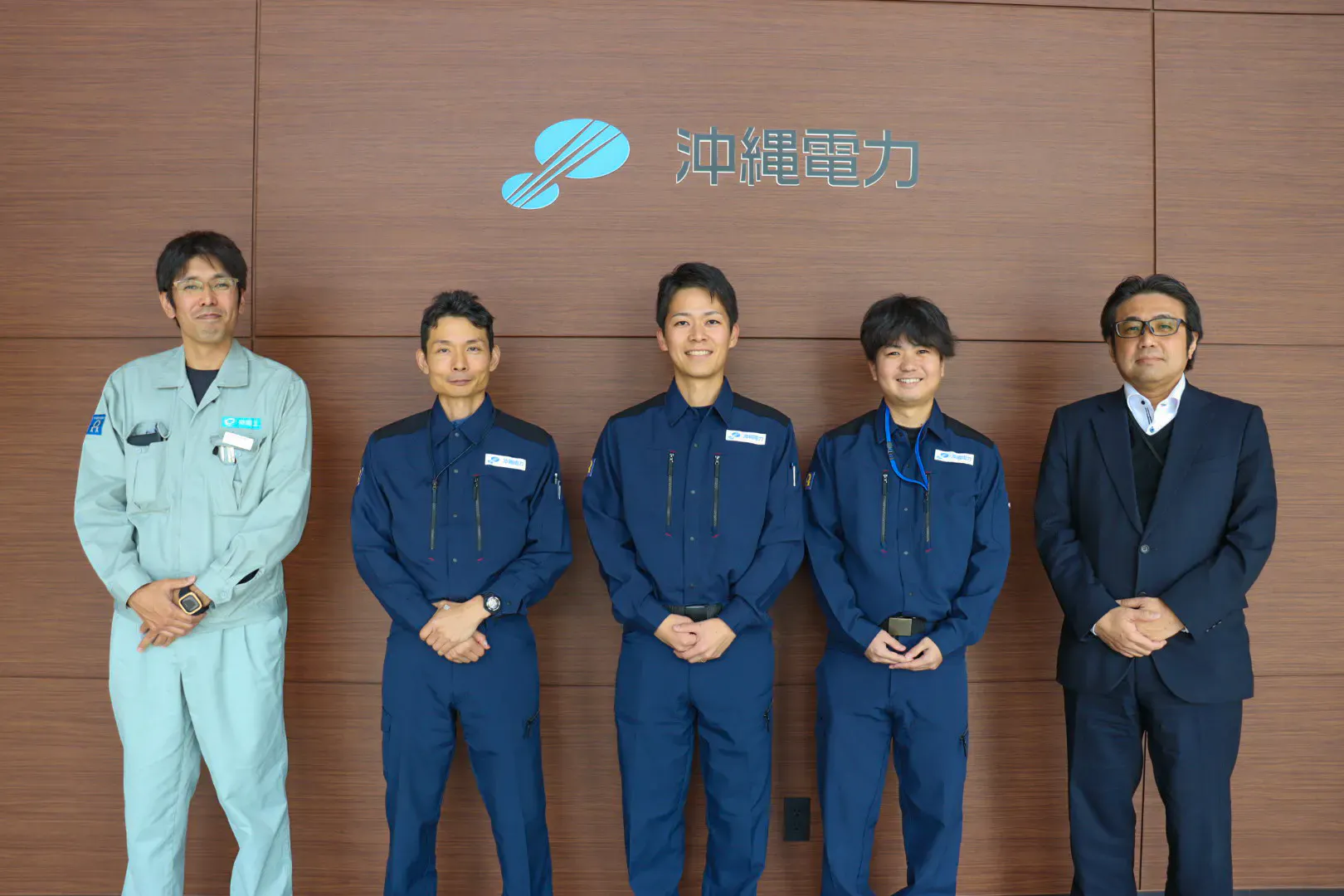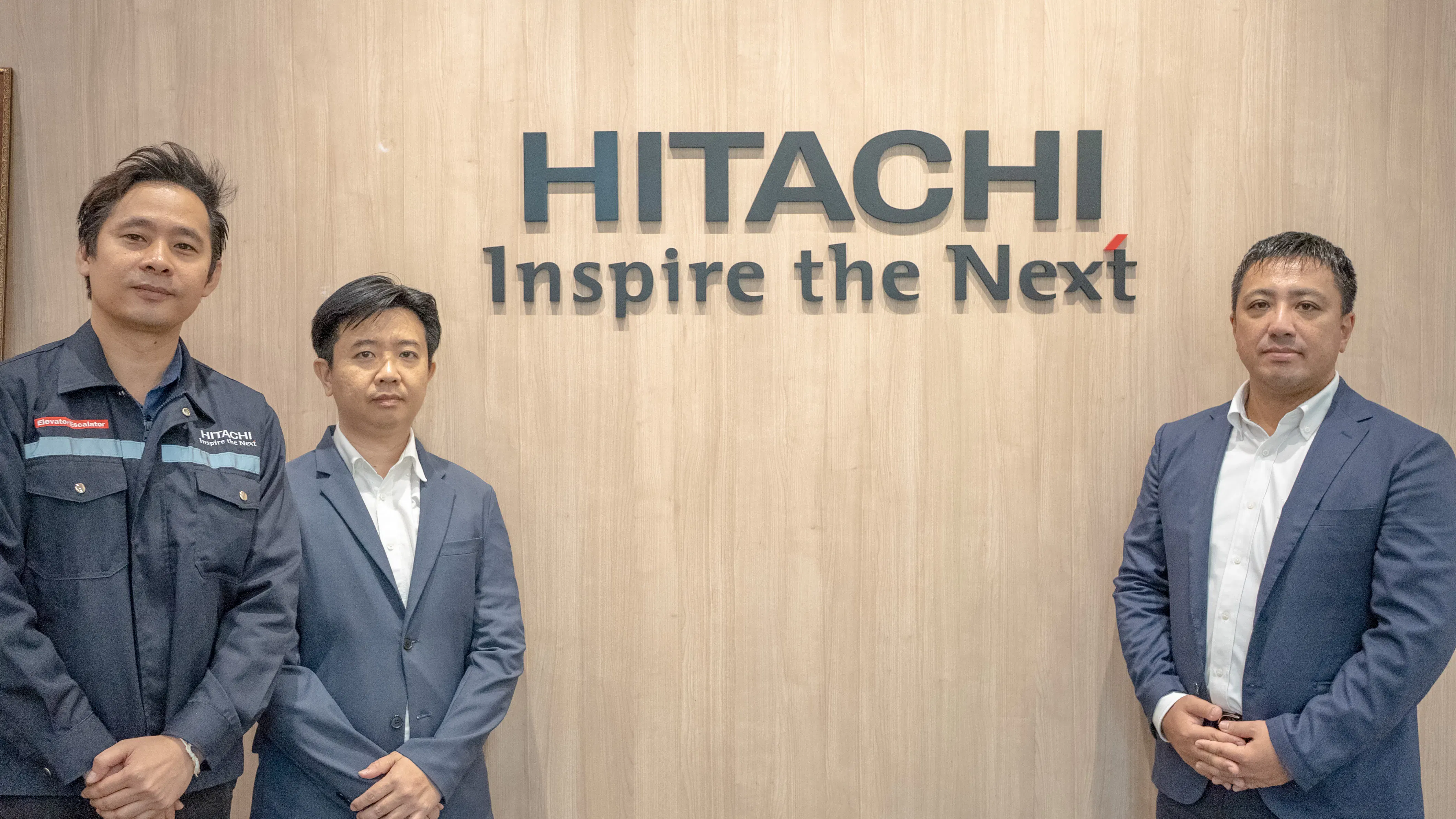Yondenko Corporation
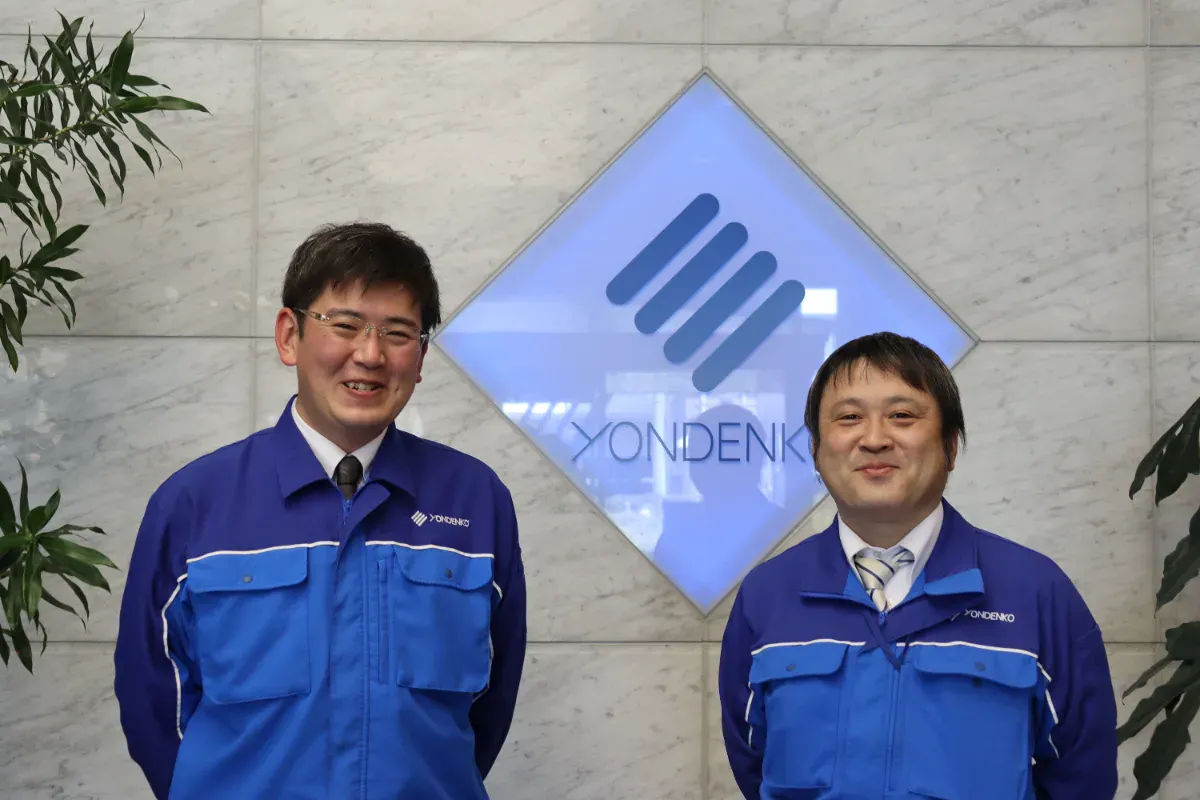

Company Name
Yondenko Corporation
Number of Employees
2,060
Business Activities
Electrical construction, HVAC and plumbing work, information and communication
Utilization Services
Background and Effects of KANNA Implementation
Issue
1) There were frustrations with checking documents and creating reports on-site.
2) They struggled with exchanging large data files with partner companies.
3) The wide variety of projects made their management increasingly complex.
Key Factors for Implementation
To eliminate time loss related to the creation, viewing, and sharing of documents.
Effects and Improvements
1) Checking documents and creating reports became possible from smartphones and tablets, with immediate uploads to the cloud, significantly reducing work time.
2) Large data files can now be exchanged through the app without the need for email attachments or data transfer services, facilitating smoother information sharing.
3) Individual project management became possible, making it easier to organize and manage multiple projects
Person interviewed
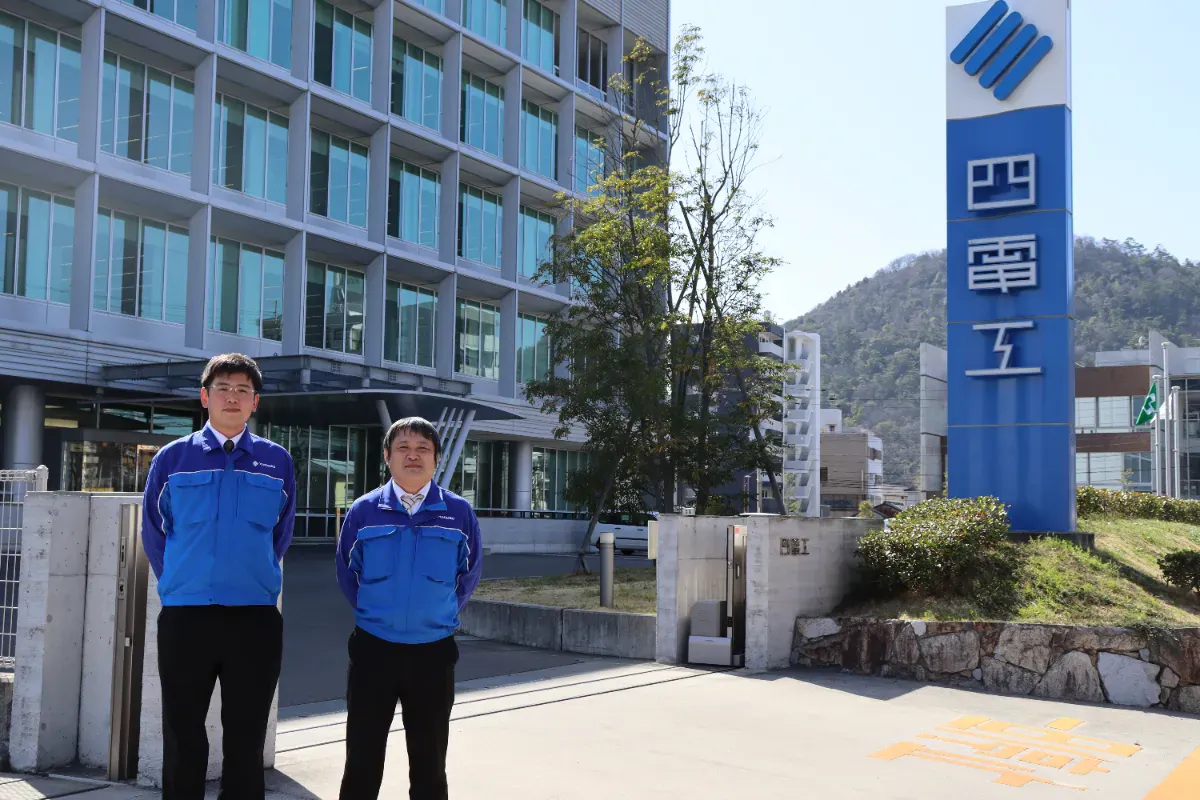
Mr. Imai and Mr. Tamai from the System Technology Section of the System Technology Department at Yondenko Corporation
Resolving Multiple Challenges and Improving the Industry-wide Issue of Overtime Work
— First, could you tell us about Yondenko’s business?
Mr. Imai: As a comprehensive facility company, we are primarily involved in infrastructure-related facility construction.
Our business spans a wide range, from electrical facilities to HVAC and water supply plumbing, information and communication construction, and system control work. Additionally, we receive requests for construction projects from all over Japan.
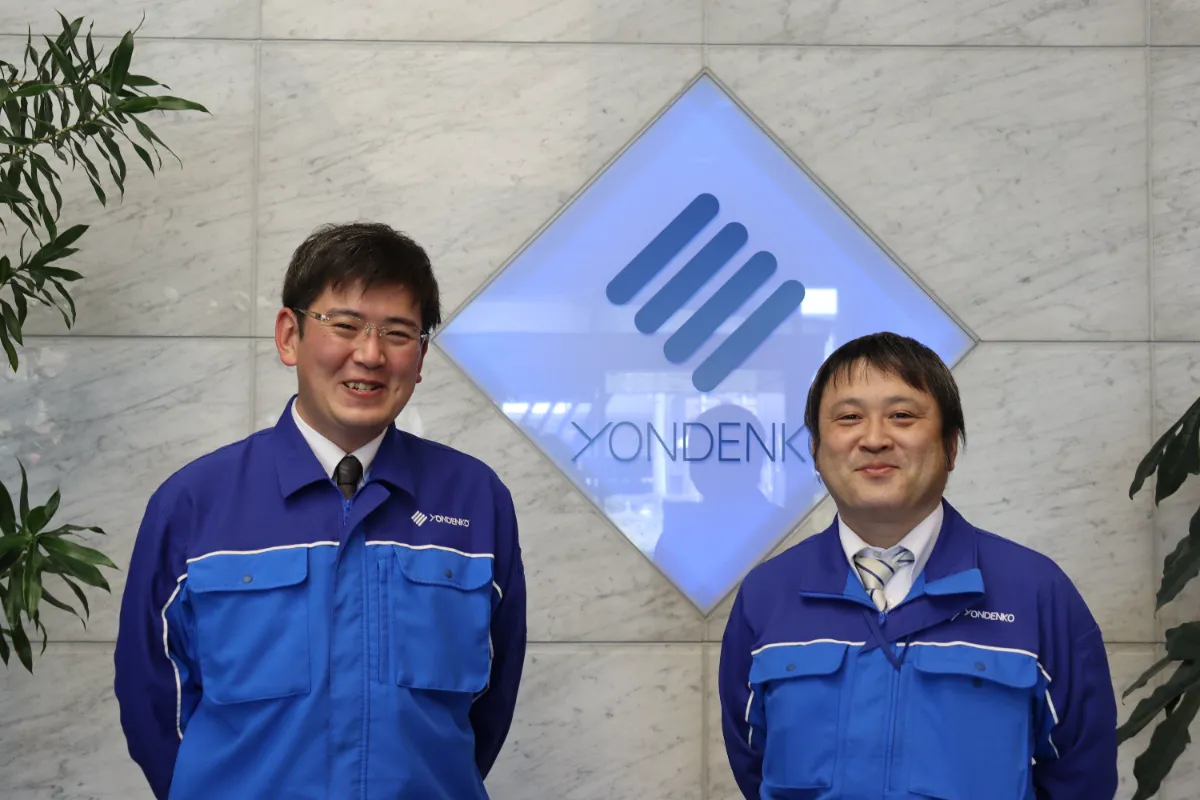
— Your company, which handles facility construction across the country, has over 2,000 employees. Can you tell us more about the System Technology Department which adopted KANNA?
Mr. Imai: Our main work involves electrical instrumentation construction. Specifically, this includes electrical work related to measurement and control devices, software development for automated control, and the development of computer tools to manage these systems. In short, we are a department specialized in control and monitoring.
— What challenges led to the introduction of KANNA?
Mr. Imai: We wanted to eliminate the hassles of information sharing and reduce work hours. This was the primary reason behind the introduction of KANNA. Our company has been working on digitizing work documents for some time, but even with a shared data server, accessing the server each time to view documents was still necessary.
In short-term projects, temporary offices are often not set up, and there may only be a small storage space for materials. In such confined spaces, we had to open laptops and access the shared server via tethering. These minor inconveniences, when accumulated, lead to significant time loss.
Reducing overtime work is a challenge faced by the entire construction industry. In addition to smoothing information sharing at the site, we want to accelerate the shift from paper documents to digital data and improve personnel management on-site. To reduce overtime work, we need to solve these multiple issues and shorten the overall work time.
Flexible Customization and Unlimited Accounts for Partner Companies
— So, you chose KANNA. How did you first hear about the service?
Mr. Imai: There are several construction management apps out there, and we were wondering which one to choose. We even attended study sessions for evaluation purposes, but the direct recommendation came from MonotaRO. We often rely on MonotaRO for urgent procurement of materials, so we asked for their advice, and they introduced us to KANNA.
— What ultimately made you choose KANNA?
Mr. Imai: The first deciding factor was its visual ease of use. We had tried other construction management apps, but KANNA stood out for its clarity. Some of our partner companies have employees who are not very familiar with app operations. However, with KANNA, even those unfamiliar with such tools could operate it intuitively right from the first glance.
Additionally, the fact that the number of accounts (partner company accounts) is unlimited was a major advantage. Most construction management apps charge based on the number of accounts, but KANNA is different. We were able to conduct trial runs with some of our partner companies, and this was possible because KANNA's unique pricing structure kept the initial costs low.
Mr. Tamai: Compared to other construction management apps, KANNA also excels in customization flexibility. Many apps come with preset, packaged features, but KANNA allows you to show only the functions you need and hide the unnecessary ones. It feels like the app is tailored to meet our exact needs.
To be honest, there are still some areas where we think improvements could be made. However, the sales team at KANNA is always very responsive to our feedback. Their proactive attitude and the potential for future development were also reasons why we chose KANNA.
Efficient and Smooth Document Sharing and Report Creation from Anywhere
— How has your experience been after actually implementing KANNA?
Mr. Tamai: After about two months of test operation, we fully launched in April, and KANNA has contributed to our business in two major ways. First, there’s the reporting function. At our company, we not only need to share information, but we also have a lot of documents that need to be kept as official records for legal purposes.
With KANNA, these reports can be created quickly and easily from a smartphone or tablet. As Mr. Imai mentioned, we used to have to open up laptops in cramped spaces, like material storage areas, and work hunched over. After implementing KANNA, that hassle has been eliminated, and we can upload documents immediately as electronic data.
The second major benefit is the strengthened collaboration with our partner companies. Due to security concerns, we cannot use shared servers to communicate with external parties. As a result, we previously relied on email to share documents such as drawings and construction photos. However, as society becomes more digital, the size of individual files has continued to increase.
Large files can’t be attached to emails, so we used data transfer services for big files, but these are often restricted due to different companies’ security policies. It was quite a struggle, but with KANNA, we can simply assign accounts to our partner companies, enabling immediate document sharing. This has been a tremendous help.
— You mentioned earlier that some partner companies might not be familiar with using apps. How has the usability been for them?
Mr. Tamai: In terms of usability, we haven't encountered any significant issues. Everyone has been using it smoothly from the start. Not only is it easy to view shared documents, but uploading photos is also simple, and we've heard positive feedback from our partner companies, with comments like, "This is great!" Of course, it's been well-received by our own staff as well.
Mr. Imai: From the perspective of managing sites, the ability to manage each project individually has been a big advantage. We often assign multiple projects to the same partner companies, which can lead to documents getting mixed up and communication errors. However, with KANNA, each project can have its own dedicated thread, eliminating those concerns.
Mr. Tamai: The chat function is also very useful in terms of individual project management. When managing many projects, it can be difficult to stay organized. With KANNA, messages exchanged with partner companies are displayed by project, making it easier to keep things clear. Additionally, the ability to post images in the chat has contributed to better progress management.
Easy-to-Use, Allowing Seamless Adoption by External Partners
— Do you think KANNA has helped address the challenge of reducing work hours?
Mr. Imai: Yes. While we are just entering the full-scale operation phase, the ease of creating reports and the strengthened collaboration with our partner companies have already contributed to smoother operations. Most importantly, what we value the most is that it's simple and not cumbersome to use.
We, ourselves, are involved in software development, so we don’t find digital tools like KANNA difficult. However, it's not safe to assume that all our partner companies feel the same. If they find it difficult to use from the beginning, the tool would be hard to implement widely. In that regard, we have high expectations for KANNA because of its simplicity.
— Lastly, could you tell us about your future outlook?
Mr. Imai: Electrical instrumentation work requires highly specialized knowledge, making our department somewhat unique. We handle everything from design to on-site work, software development, and PC tool development, and we even do our own sales work at times. This places a significant burden on each team member, and we want to alleviate that burden as much as possible.
Our goal is to reduce this burden while expanding the department’s operations. To achieve this, and to address the industry-wide issue of overtime, we need to ensure the quality of each task while streamlining the overall workload.
The reason we introduced KANNA was to support our future business expansion. By using KANNA to strengthen collaboration with our partner companies and delegating tasks where possible, we can focus more on highly specialized work. We hope to expand both our achievements and our revenue.
Company Name: Yondenko Corporation
Business Activities: Electrical construction, HVAC and plumbing work, information and communication construction, and system control engineering
Established: May 1, 1963
Number of Employees: 2,060 (as of the end of March 2022)
Website: https://www.yondenko.co.jp/
Article published on: August 21, 2025


